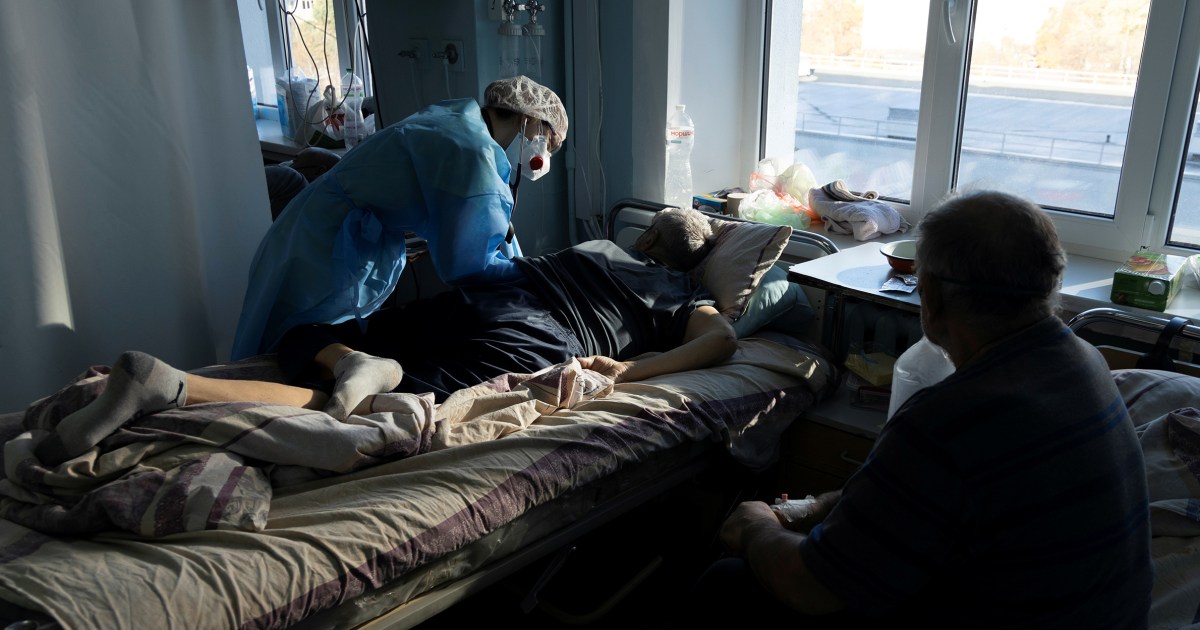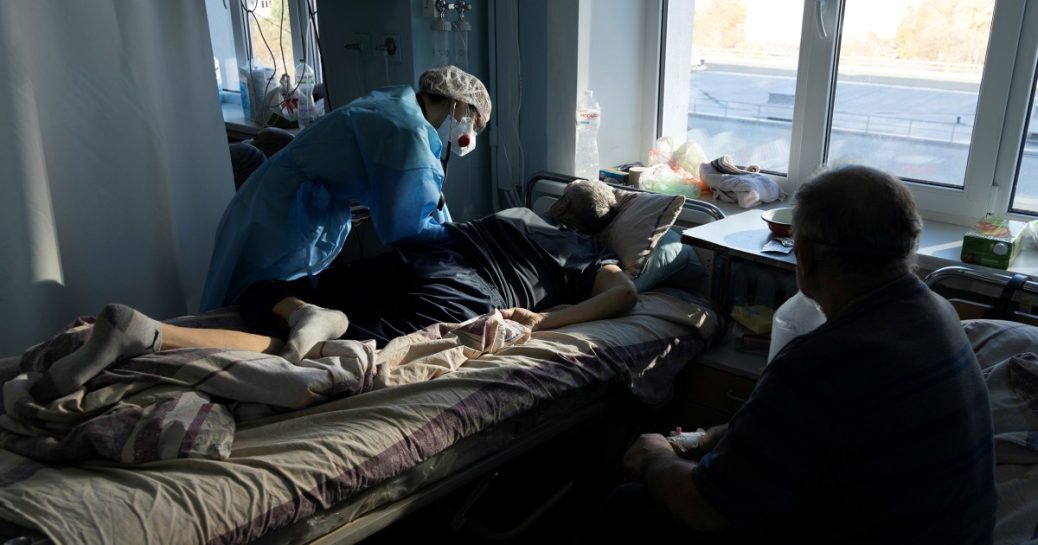
Russia’s invasion of Ukraine brings a host of serious threats to public health beyond the military violence itself, experts warn.
The conflict could make it difficult for people with conditions like diabetes or cancer to get treatment, and it may increase the spread of infectious diseases, including Covid-19, as people gather in shelters or flee the country.
Ukraine is coming off its largest spike in Covid cases yet — its seven-day average hit a record of 37,408 on Feb. 10, according to an NBC News tally. Less than 40 percent of the population had been vaccinated as of Feb. 15.
What’s more, Ukraine has been trying to control a polio outbreak since October. Two children with paralytic polio have been identified, and 19 more were identified as infected with the virus but did not develop paralysis.
“Confirmation of the second paralytic case in January 2022 is evidence that the virus is still circulating in the country,” World Health Organization spokesperson Tarik Jašarević said in a statement. “The current crisis in Ukraine increases the risk of national and international spread of the virus.”
As of 2020, about 87 percent of the population had received the first dose of the polio vaccine, Jašarević said. Ukraine began a vaccination campaign on Feb. 1 targeting children younger than 6 who hadn’t gotten their polio shots.
“It is vital that the campaign continues to ensure that the remaining over 100,000 children are protected,” he said.
Dr. Timothy Erickson, a physician at Brigham and Women’s Hospital and faculty member at the Harvard Humanitarian Initiative, said there is concern the polio case count will grow.
“With conflicts it’s quite apparent that polio cases do not only increase but re-emerge in countries where it was once thought to be eradicated,” he said.
In the more immediate term, however, global health experts worry about coming disruptions of care for people in Ukraine who have noncommunicable diseases.
“We’re talking everything from insulin for diabetes, cardiac medications, but then also some of the more serious and expensive diseases — treatments for cancer, dialysis,” Paul Spiegel, director of the John Hopkins Center for Humanitarian Health, said.
Such disruptions could happen, Spiegel explained, if people are moving within or out of the country, or if an insufficient supply of medication is entering Ukraine, or if hospitals get shut down.
Global health experts expect most Ukrainians’ concerns about Covid to take a backseat to more pressing survival needs in these early days of violence but said it’s likely transmission of the virus will rise.
It will, however, probably be difficult to assess a Covid increase in real time, according to Sonny Patel, a public health practitioner and visiting scientist at the Harvard T.H. Chan School of Public Health.
“These numbers are going to have to be taken with some sort of salt, understanding it may be underreported, or in many ways not reported at all,” Patel said.
Jarno Habicht, the World Health Organization representative in Ukraine, said in a Friday briefing that “the number of cases is very high, and we are still in the most difficult Covid times currently.”
He noted, though, that hospitalizations and deaths are lower than in past waves. Ukraine’s deadliest day of the pandemic came in mid-November.
Spiegel said that for people who do wind up with severe Covid in the near future, ICU capacity could be limited because of trauma cases from the fighting, and already existent shortages of oxygen in some parts of the country could get worse.
WHO Director-General Tedros Adhanom Ghebreyesus announced on Thursday that he had released $3.5 million in emergency funds to buy and deliver medical supplies to Ukraine.
In his remarks, Habicht noted that in recent years Ukraine had been considered a star in the region in terms of its progress on reforms to health financing and primary care. As recently as last week, he added, WHO had been in discussions with Ukrainian authorities about a long-term health care strategy that would inform the country’s goals through 2030.
“It is really a question now how all of this moves forward,” he said, adding, “now our priorities have shifted to trauma care, ensuring access to services, continuity of care, mental health and psychosocial support, but also moving forward all the reforms.”
Anticipating and addressing mental health impacts of the invasion, such as PTSD, will be key, experts agreed.
“Just getting through this is going to bring out a lot of mental health issues. Alcohol and substance abuse always seem to follow these types of tragedies,” Erickson said.









Recent Comments